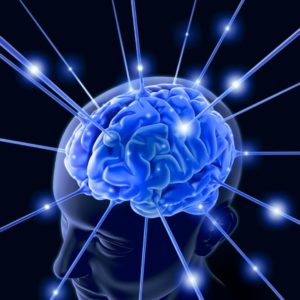Our Services:
Utilizing the latest advances in medicine combined with the state-of-the-art techniques, our goal is to treat our patients with comfort and compassion. Our general and specialized services include:
Utilizing the latest advances in medicine combined with the state-of-the-art techniques, our goal is to treat our patients with comfort and compassion. Our general and specialized services include:
To learn more about the services we provide, please call us today at 203-377-5988 to schedule an appointment.
 Dementia is a broad medical term for disorders that lead to impairment of thinking, memory, and behavior severe enough to interfere with daily function. The leading causes of dementia are vascular dementia and Alzheimer’s disease. Alzheimer’s disease is the most prevalent kind of dementia, affecting more than 5 million people in the United States. Some other causes of dementia include frontotemporal dementia and dementia with Lewy bodies. Symptoms of dementia tend to develop gradually and only become noticed when they worsen. Some may include:
Dementia is a broad medical term for disorders that lead to impairment of thinking, memory, and behavior severe enough to interfere with daily function. The leading causes of dementia are vascular dementia and Alzheimer’s disease. Alzheimer’s disease is the most prevalent kind of dementia, affecting more than 5 million people in the United States. Some other causes of dementia include frontotemporal dementia and dementia with Lewy bodies. Symptoms of dementia tend to develop gradually and only become noticed when they worsen. Some may include:
 Balance disorders are a group of disorders that can make you feel unsteady or dizzy. The visual, vestibular, and somatosensory systems work together to help you maintain normal balance. When these systems do not function properly, balance issues can result. Most balance disorders generally result from problems with the vestibular system located in the inner ear. Identifying the root cause and type of balance disorder is crucial for determining successful treatment. Balance disorders are often characterized by their symptoms, and some of which include:
Balance disorders are a group of disorders that can make you feel unsteady or dizzy. The visual, vestibular, and somatosensory systems work together to help you maintain normal balance. When these systems do not function properly, balance issues can result. Most balance disorders generally result from problems with the vestibular system located in the inner ear. Identifying the root cause and type of balance disorder is crucial for determining successful treatment. Balance disorders are often characterized by their symptoms, and some of which include:
Balance disorders can also lead to nausea, changes in heart rate, blood pressure, fear, or panic. Symptoms of balance disorders can come and go or become chronic.
 A concussion is a prevalent kind of head injury caused by a direct blow to the head or a sudden head movement that causes temporary brain malfunction. When the head suffers an unexpected blow, the brain can move and hit the skull. This can affect memory, reflexes, judgment, speech, and coordination. Concussions are often the result of a sports-related injury or car accident but can also occur from being shaken violently. Many concussions are considered mild injuries, and patients usually make a full recovery. Some of the tell-tale symptoms of a concussion include:
A concussion is a prevalent kind of head injury caused by a direct blow to the head or a sudden head movement that causes temporary brain malfunction. When the head suffers an unexpected blow, the brain can move and hit the skull. This can affect memory, reflexes, judgment, speech, and coordination. Concussions are often the result of a sports-related injury or car accident but can also occur from being shaken violently. Many concussions are considered mild injuries, and patients usually make a full recovery. Some of the tell-tale symptoms of a concussion include:
Some people may not realize they have a concussion or may not develop symptoms immediately after the injury. A concussion can potentially lead to bleeding in the brain, so it is essential to seek medical attention if you suspect you’ve suffered concussions after an injury.
 Balance disorders are a group of disorders that can make you feel unsteady, or Epilepsy is the fourth most common neurological disorder that can affect people of all ages. Epilepsy is considered a spectrum condition characterized by unpredictable seizures. This condition can lead to a variety of other health problems. Epilepsy can develop due to an imbalance in nerve signals, abnormal brain wiring, or changes in brain cells, but the cause is unknown in many cases. However, it can also be caused by a head injury, genetics, stroke, tumor, or prenatal brain damage. Temporary loss of consciousness, confusion and staring spells are some symptoms associated with a seizure, but other symptoms include:
Balance disorders are a group of disorders that can make you feel unsteady, or Epilepsy is the fourth most common neurological disorder that can affect people of all ages. Epilepsy is considered a spectrum condition characterized by unpredictable seizures. This condition can lead to a variety of other health problems. Epilepsy can develop due to an imbalance in nerve signals, abnormal brain wiring, or changes in brain cells, but the cause is unknown in many cases. However, it can also be caused by a head injury, genetics, stroke, tumor, or prenatal brain damage. Temporary loss of consciousness, confusion and staring spells are some symptoms associated with a seizure, but other symptoms include:
Seizures that cause loss of muscle control or muscle stiffening can cause a patient to collapse or fall. While symptoms vary among patients, recurring epileptic seizures usually take on the same set of symptoms in individuals.
 A herniated disc is a damaged spinal cushion between the vertebrae. Normally, these gelatinous discs act as shock absorbers and hold the bones in place, allowing the spine to bend and move smoothly. When the softer components of the disc protrude beyond the outer layer of cartilage and cracks, a herniated disc occurs. When the disc protrudes, it can press on the nerve in the spinal canal, resulting in back pain. A herniated disc most frequently occurs in the lumbar spine, but cervical discs in the neck can also herniate and cause pain in the neck and shoulders. Some of the symptoms of a herniated disc include:
A herniated disc is a damaged spinal cushion between the vertebrae. Normally, these gelatinous discs act as shock absorbers and hold the bones in place, allowing the spine to bend and move smoothly. When the softer components of the disc protrude beyond the outer layer of cartilage and cracks, a herniated disc occurs. When the disc protrudes, it can press on the nerve in the spinal canal, resulting in back pain. A herniated disc most frequently occurs in the lumbar spine, but cervical discs in the neck can also herniate and cause pain in the neck and shoulders. Some of the symptoms of a herniated disc include:
Herniated discs can become more of an issue during the normal aging process as the discs tend to lose flexibility and wear down. Stress on the discs may also result from heavy lifting, obesity, or traumatic injury.
 When experiencing pain in your head, it can be challenging to differentiate a migraine from a traditional headache. Migraines are intense headaches accompanied by symptoms other than head pain and can last from hours to days at a time. Many individuals experience recurring migraines triggered by anxiety, stress, hormonal changes, or other environmental factors. Some of the widely recognized symptoms of a migraine headache include:
When experiencing pain in your head, it can be challenging to differentiate a migraine from a traditional headache. Migraines are intense headaches accompanied by symptoms other than head pain and can last from hours to days at a time. Many individuals experience recurring migraines triggered by anxiety, stress, hormonal changes, or other environmental factors. Some of the widely recognized symptoms of a migraine headache include:
Migraine headaches usually range from moderate to severe and can cause intense, throbbing pain that can interfere with daily function.
 Multiple Sclerosis (MS) is a progressive central nervous system disease that disrupts communication between the brain, spinal cord, and the body. MS is considered to be a disruptive autoimmune disease where the immune system targets and attacks the nerves of the central nervous system. MS causes a degeneration of the myelin sheath, which is the protective covering of the nerves. This results in a slowing or stoppage of nerve impulses. Multiple sclerosis affects women more so than men and is typically diagnosed between the ages of 20 and 40. MS can be a very unpredictable disease and can display a host of different symptoms, including:
Multiple Sclerosis (MS) is a progressive central nervous system disease that disrupts communication between the brain, spinal cord, and the body. MS is considered to be a disruptive autoimmune disease where the immune system targets and attacks the nerves of the central nervous system. MS causes a degeneration of the myelin sheath, which is the protective covering of the nerves. This results in a slowing or stoppage of nerve impulses. Multiple sclerosis affects women more so than men and is typically diagnosed between the ages of 20 and 40. MS can be a very unpredictable disease and can display a host of different symptoms, including:
 Parkinson’s disease is a progressive and often debilitating disorder of the central nervous system that occurs when cells in the brain begin to degenerate. The nerve cells in the brain produce the neurotransmitter known as dopamine. When these cells become damaged, they produce less dopamine, causing problems with movement. While the exact cause of the disease is unknown, it may be linked to gene abnormalities. Symptoms of this disease gradually progress over time and can include:
Parkinson’s disease is a progressive and often debilitating disorder of the central nervous system that occurs when cells in the brain begin to degenerate. The nerve cells in the brain produce the neurotransmitter known as dopamine. When these cells become damaged, they produce less dopamine, causing problems with movement. While the exact cause of the disease is unknown, it may be linked to gene abnormalities. Symptoms of this disease gradually progress over time and can include:
Parkinson’s disease is diagnosed through a neurological exam. While this disease is incurable, certain treatments can relieve some of the problematic symptoms.
 Stroke is one of the leading causes of death or long-term disability in the United States. When there is a disruption or interruption of oxygen-rich blood flow to a specific area of the brain, a stroke can occur. Oxygen deprivation causes an injury to the brain tissue. When the brain cells in the area become damaged or die, their function becomes impaired. Some of the well-known symptoms of a stroke include:
Stroke is one of the leading causes of death or long-term disability in the United States. When there is a disruption or interruption of oxygen-rich blood flow to a specific area of the brain, a stroke can occur. Oxygen deprivation causes an injury to the brain tissue. When the brain cells in the area become damaged or die, their function becomes impaired. Some of the well-known symptoms of a stroke include:
Certain lifestyle factors increase the risk of stroke, including high blood pressure and smoking. Understanding the risk factors and implementing changes to your lifestyle are the best ways to lower the risk of having a stroke.
 Hypersomnia is a relatively rare sleep disorder characterized by excessive daytime sleepiness. Those dealing with hypersomnia have difficulty staying awake during the day or sleep excessively at night. The symptoms of hypersomnia can be troubling and often interfere with everyday life. Some of the symptoms of this uncommon sleep disorder include:
Hypersomnia is a relatively rare sleep disorder characterized by excessive daytime sleepiness. Those dealing with hypersomnia have difficulty staying awake during the day or sleep excessively at night. The symptoms of hypersomnia can be troubling and often interfere with everyday life. Some of the symptoms of this uncommon sleep disorder include:
Hypersomnia can result from getting too little sleep at night or an underlying illness or disorder. Sleep deprivation, narcolepsy, sleep apnea, and neurological disease can potentially cause hypersomnia.
Neurological Specialists, P.C.
Merrit 8 Building
99 Hawley Lane Suite 1120
203-377-5988
Neurological Specialists, P.C.
52 Beach Road Suite 202
203-254-0284